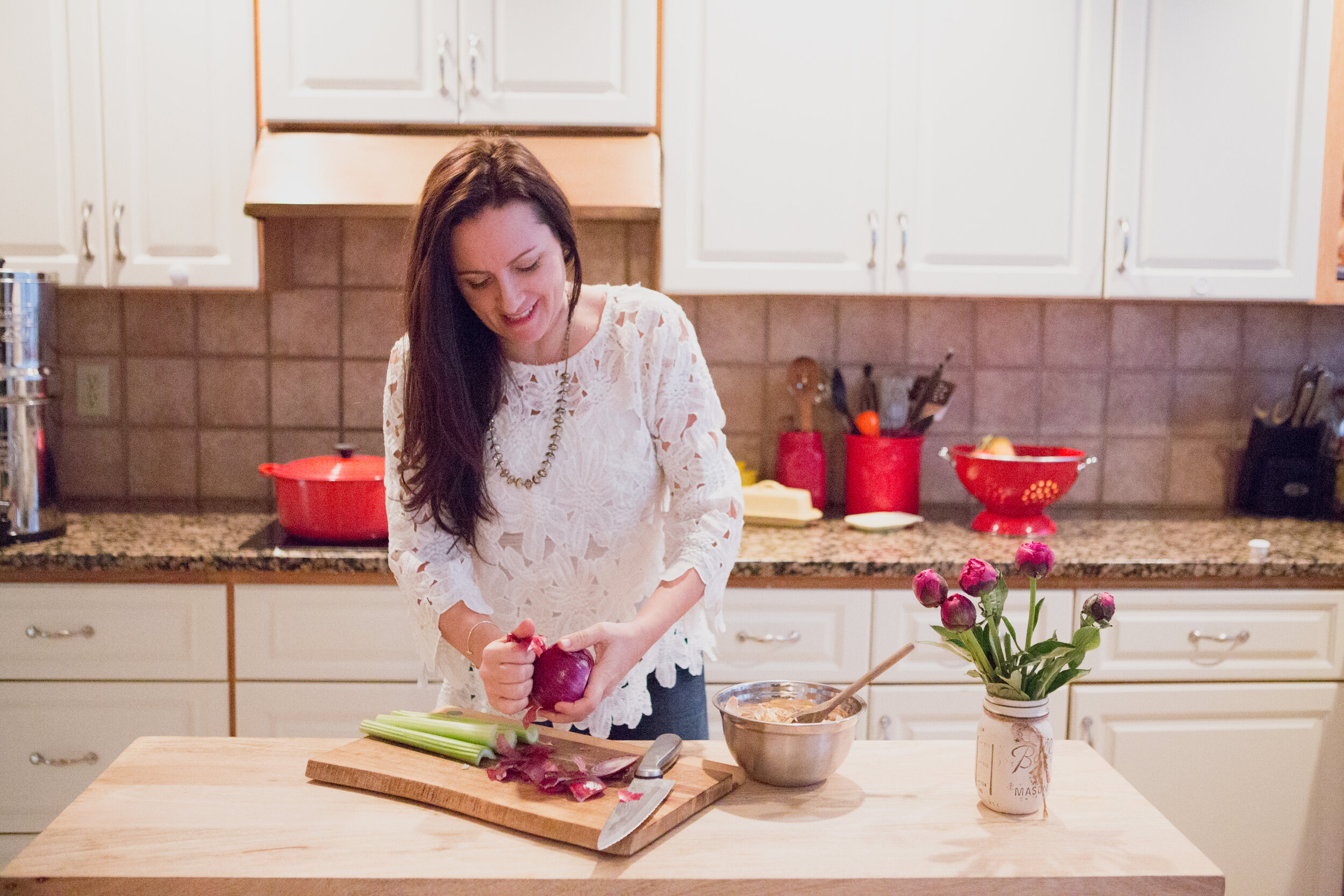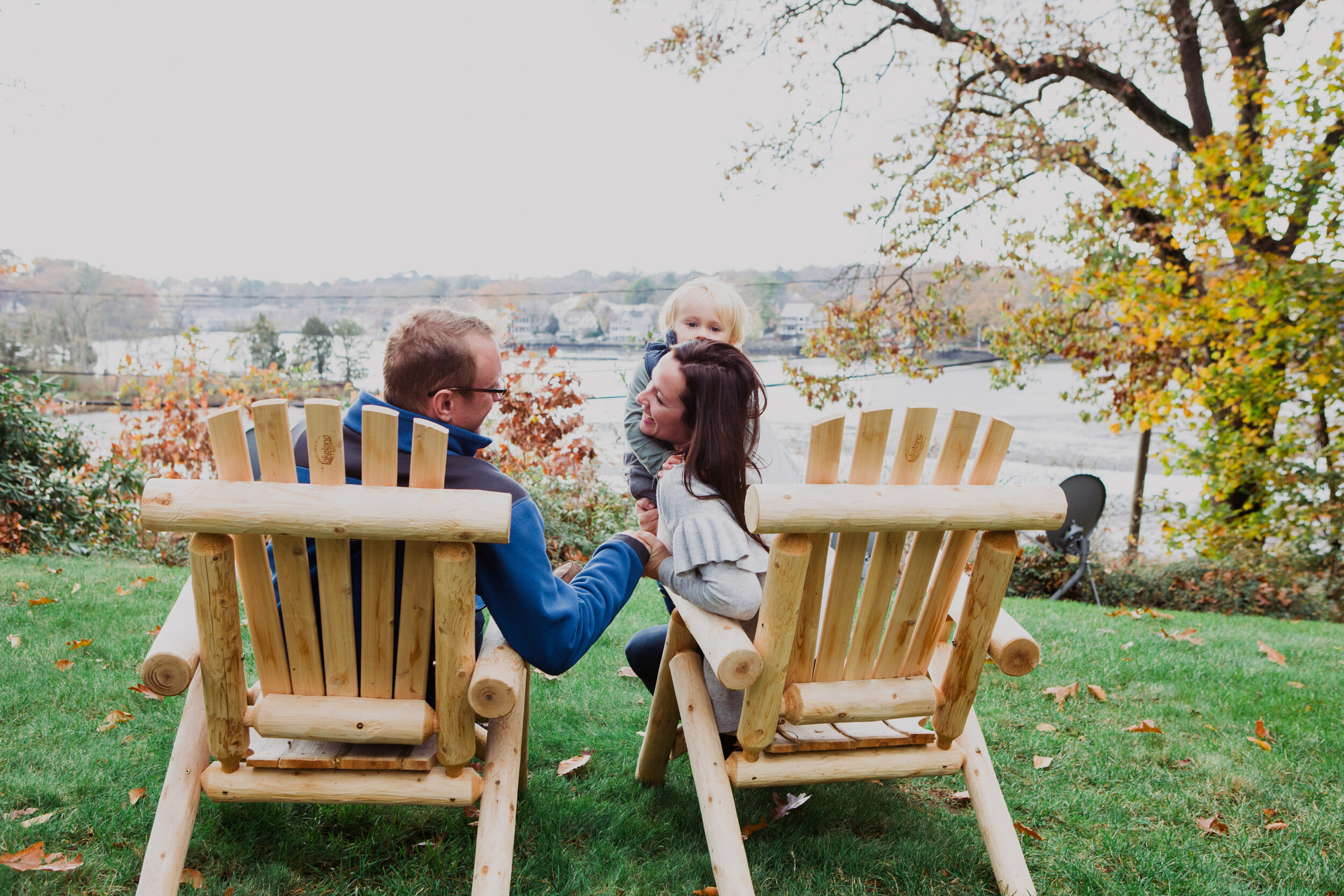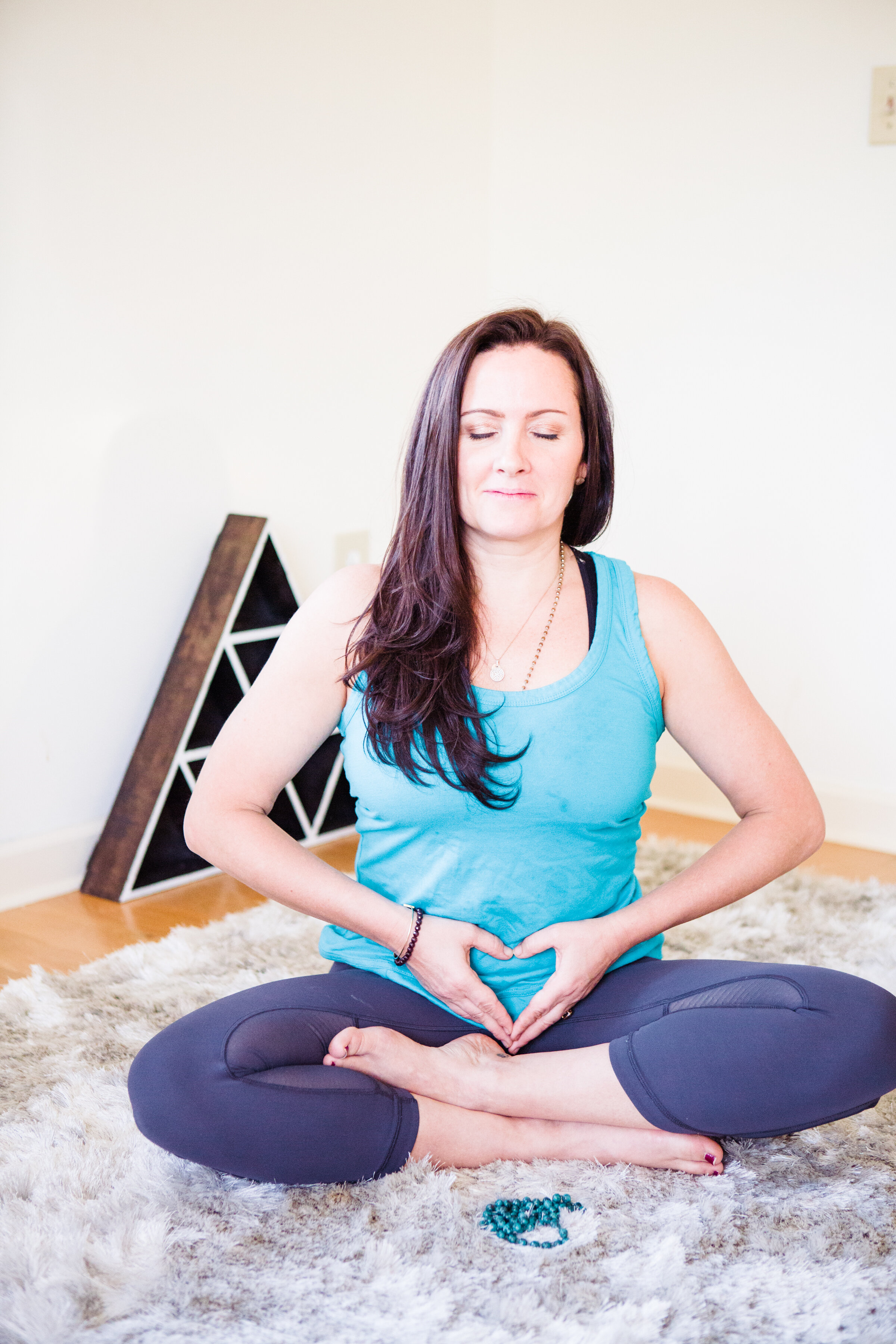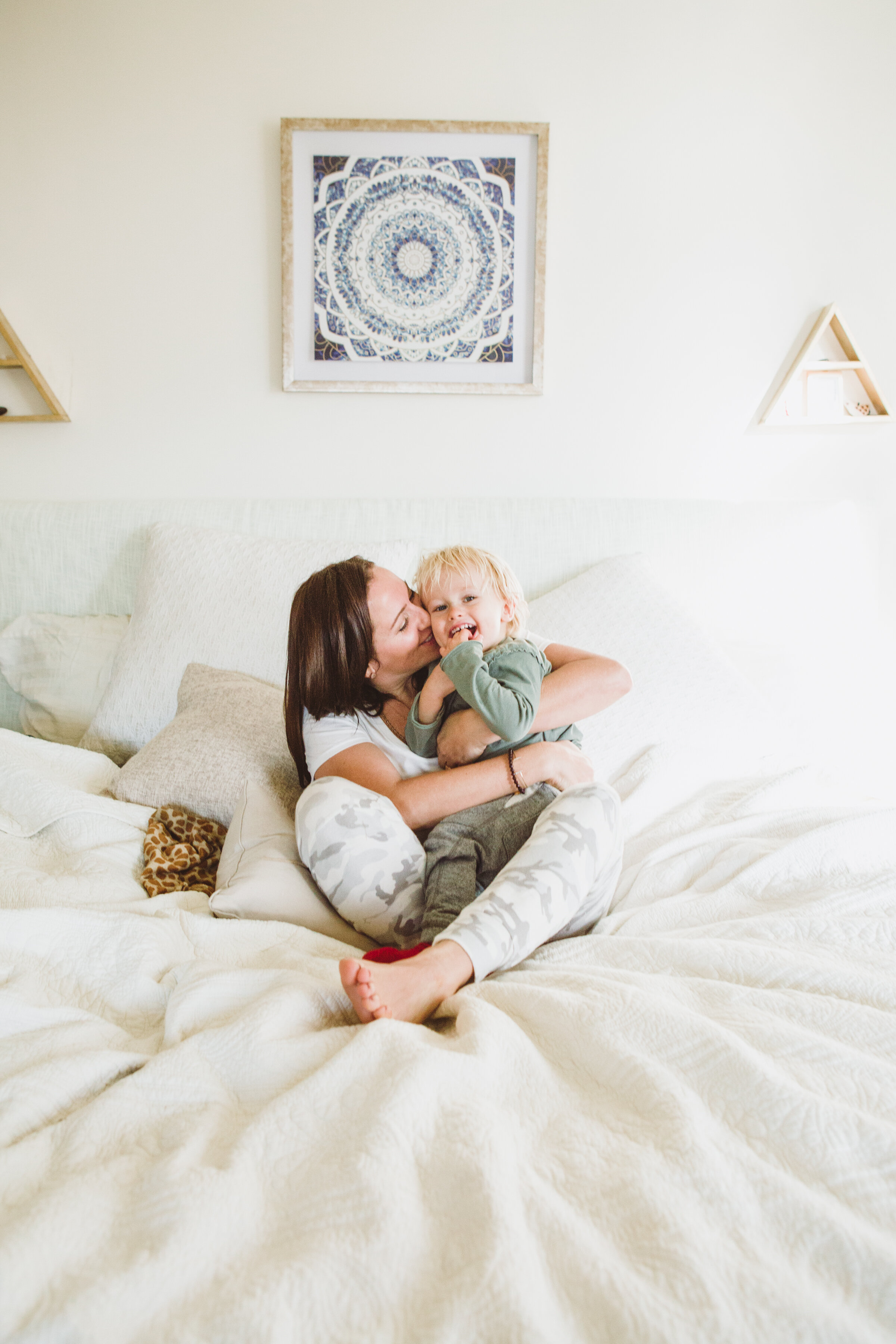Photo Credit: Christa Meola
I have been drawn to Aimee for years, before I conceived and was deep in the throes of my initial bout of infertility. I came across Aimee when I was searching for fertility resources and was impressed by her gentle yet confident nature which comforted me into believing that as a late thirty something, there was still hope that I could pregnant.
Aimee and I finally met in person when I moderated a panel last year on (in)fertility at Claudia Chan’s S.H.E. Summit. I loved Aimee’s approach towards wellness as a lifelong journey rather than just for fertility. I also admired her authenticity in sharing that her personal story hasn’t always been perfect either.
It is my esteemed honor and privilege to introduce you to Aimee Raupp, health, wellness and fertility expert who also has earned the title of Fertility Detective. Read on below to learn more about Aimee and join us this Sunday for our bi-monthly Sunday Session. Aimee will be joining me live to share more about her story along with several fertility wellness tips.
You’ve been called the fertility detective. How did you earn that title and when did you know that you were on to something?
AR: I initially gave myself the title, mainly because that's how I feel about the work I do. I am a fertility detective. I literally look under every single rock to help my clients figure out why they're having challenges. I'm so much more than just an acupuncturist, or an author, or a woman who's been in the field of women's health and fertility; I am a fertility detective. I look at the emotional component, the physical component, the nutritional component, and I put all the pieces together to figure out why a woman isn't getting or staying pregnant.
In your view, what is the most major roadblock to getting pregnant?
AR: Environmental toxins. They are endocrine disrupting chemicals that can be found in our bath and beauty products, the hormones in our foods, processed packaged foods, or stress, poor sleep hygiene and other environmental stressors.
Are there any fertility myths that you would like to debunk?
AR: AMH and FSH aren’t everything.
Your AMH and FSH should not define you as these numbers are not static and they can change all the time.
AMH and FSH only tell us about the guesstimate amount of eggs you have left. These numbers tell us nothing about the quality of those eggs. You can improve your egg quality. Age has very little to do with your fertility, if you are menstruating and ovulating you can biologically get pregnant.
You’ve proven that women get pregnant after 40; can you share why not all hope is lost?
AR: I got pregnant without medical intervention at the age of 40. I have helped hundreds of women over the age of 40 get pregnant and stay pregnant. Age is just one factor that comes into play in regards to fertility, but it is not the ultimate factor, and it is not the end game. As I just said if you are menstruating and ovulating regularly pregnancy is a possibility. And a lot of times even if you're not menstruating and ovulating regularly you can potentially get pregnant eventually too.
Is there anything about your own personal journey that you would like readers to know?
AR: That I personally still have hope.
Even at the age of 45, I believe in my body and its ability to get and stay pregnant with a healthy vital child.
Why is optimizing overall health important when we think about fertility and beyond?
AR: Your fertility is an extension of your health. Health is mental, emotional, physical and nutritional. They are not separate. All of these factors contribute to your overall fertility and ability to get and stay pregnant.
What are several tips for someone looking to conceive for the first time or even facing secondary infertility?
AR: I think the most important things to realize is that your health is an extension of your fertility. So if you are dealing with digestive issues, skin issues, sleep issues, mental and emotional issues or other problems, they are all a reflection of your health which ultimately impacts your fertility. So when you are thinking about trying to conceive or actively trying to conceive, the main goal should be first to get your health in the best shape possible.
Food is medicine. You cannot out supplement a crappy diet.
Stress plays a major role in your house and ultimately your fertility. Sleeping 7 to 8 hours and night is crucial for balance hormones. Eating enough protein and fat is crucial for balance hormones.
What are your go-to resources for self care during fertility?
AR: I always bring it back to: how are you nourishing you? How are you feeding yourself? How are you treating yourself? How are you talking to yourself? Who are you surrounding yourself with? Are you taking time for you? Are you prioritizing you? These are the points that are so important to understand when it comes to self care and fertility. You need to put you and your health and vitality first.
Blogger’s note: Aimee believes that bone broth is medicine. It’s not only nourishing for the soul, but also for the womb. Check out her tutorial on how to make bone broth here!
Interested in learning more? Visit aimeeraupp.com. Also, if you purchase anything in Aimee’s shop, use the promo code FERTILUST10 for 10% off!*
About Aimee Raupp: Aimee Raupp, MS, LAc, is a renowned women’s health & wellness expert and the best- selling author of the books Chill Out & Get Healthy, Yes, You Can Get Pregnant, and Body Belief. A licensed acupuncturist and herbalist in private practice in New York, she holds a Master of Science degree in Traditional Oriental Medicine from the Pacific College of Oriental Medicine and a Bachelor’s degree in biology from Rutgers University. Aimee is also the founder of the Aimee Raupp Beauty line of hand-crafted, organic skincare products. She has appeared on The View, and has been featured in Glamour, Allure, Well + Good, GOOP, Shape, and Redbook, and has received endorsements from Deepak Chopra, Dr. Christiane Northrup, Arianna Huffington, and Gabby Bernstein for her work in helping thousands of women to improve their vitality, celebrate their beauty, and reconnect to the presence of their optimal health. Aimee is also the Head of Chinese Medicine at The Well, an active columnist for media outlets such as Thrive Global, Well + Good, MindBodyGreen and is a frequent speaker at women’s health & wellness conferences across the nation. She engages her large community worldwide through her online programs and with her website, www.aimeeraupp.com.
*I am an affiliate of Aimee Raupp’s because I believe in her services and products. If you purchase anything from her store from my link, I will receive some funds. Just wanted to let you know. Thank you!







